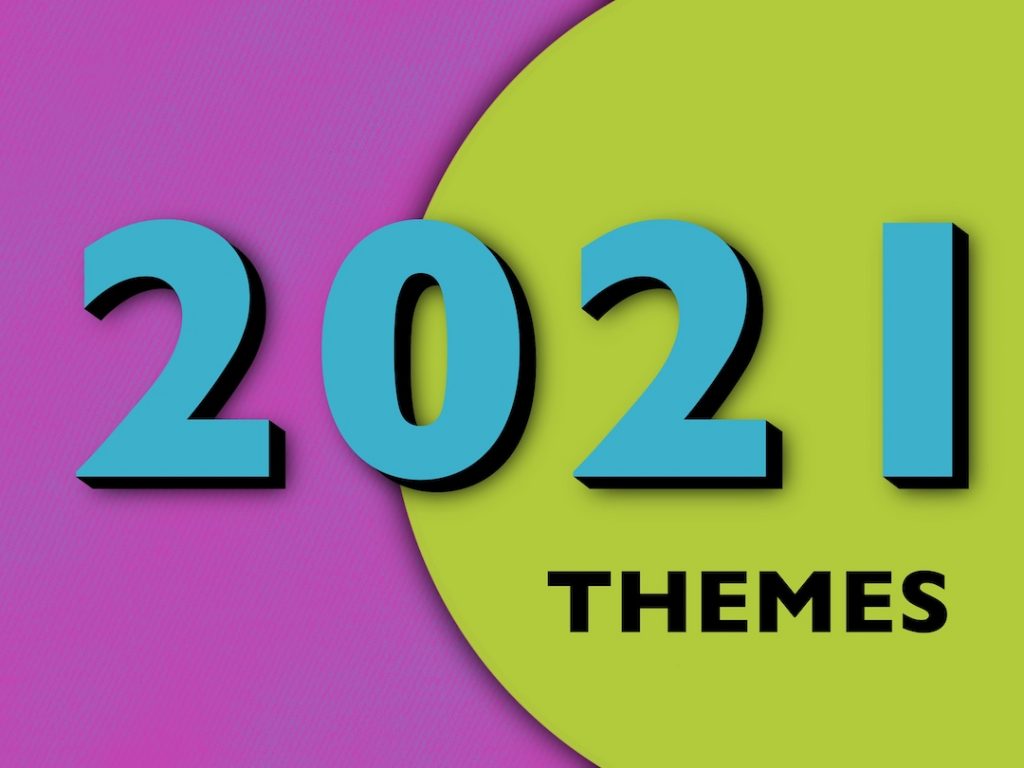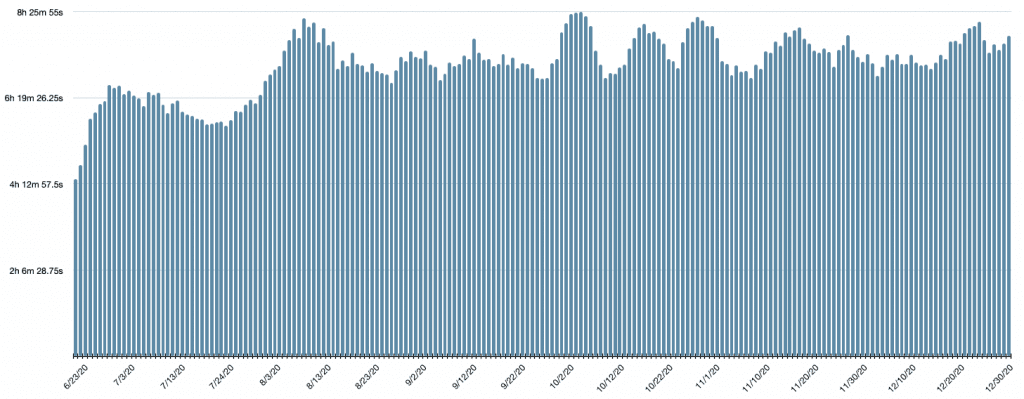
I talk about my 2021 theme on The Productivity Lab with my co-host Kyle. Listen to the episode 2021 Yearly Themes.
It’s a new year, and it’s time for a new theme.
For the uninitiated, themes, rather than a goal or resolution, allows me to put a guiding light on whatever actions I take for the year and eliminates dictating the end-results. Thereby, it allows me to focus on processes as well.
While themes are powerful, they do not eliminate the need for goals.
2020 Themes—A Review
In 2020, I introduced you to my yearly themes—the focus of my energies for that year. To remind you, they were:
- Health
- Execution
On Health
Health should be at the forefront of everyone’s mind. Still, there are things we don’t think about and or take for granted. In 2020, I’ve made it a priority to make improvements in key areas of my health:
- Mental
- Sleep
- Diet
Mental Health
Often ignored, and often stigmatized, mental health and wellbeing has thankfully seen a surge in acknowledgement and discussion within the commons of society as well as the workplace. For some.
I’ve long continued my practice of journaling, and taking “me” vacation days. I actively began to work on how I responded to events and what things I chose to focus my attention on. Over time, I began to listen to what my mind and body were saying. Some things took longer than others to hear, but eventually the words reached me, and I could steer things in a better direction.
I know this is very generic, but each person is different. What works for me doesn’t work for everyone else. If I were to recommend something, it would be to journal. Writing down your problems helps you name them, actively process your thoughts about what issues you’re facing, reduce stress, and manage anxiety. Anecdotal, but the period in my life in which I did not undertake expressive writing was my most challenging and stress inducing. There have been many studies on expressive writing and its impacts on health and mental well-being that I implore you to read.
I must warn—it’s not and end-all solution, and it won’t work for everyone. Always consult your doctor in the matter of your health and therapies to try.
Sleep
I am a night owl. I have always been. And like many night owls, we suffer in the early bird’s world.
As a result, I averaged 4-6hrs of sleep a night.
With a focus on sleep, and being lucky enough to work from home, I have shifted my average sleep time to 7.5hrs

What Did I Change?
Step 1 — Acknowledged and changed my routine
Even with working from home, I kept the same routine. It was a desperate grasp at some type of normalcy while we were, and continue to, sheltering in place. I decided to give it a change and enforce some restrictions upon myself.
- No TV after 9:30
- Social Media app time limits
- Do Not Disturb mode on all devices
- Reading before bed
Some days are better than others.
Step 2 — Tracked My Sleep
I began to track my sleep in my journal and with an app for my iPhone called Autosleep. For the journal, I would simply recall what time I went to sleep and woke. I would plot these on a hand-drawn chart. For the app, paired with my Apple Watch, it tracked my sleep by my movements.
Knowing is half the battle and if you know, you can change.
Step 3 — Ditched the Alarm Clock
Whoa, you say, isn’t that dangerous? Yes, it is.
After I had built a routine and started to increase my sleep average, I had a feel for when I naturally woke. As part of a challenge, a friend and I ditched our alarm clocks and well, we have an entire podcast episode about it.
In short, ditching the alarms have made my mornings more peaceful as they no longer begin with a piercing sound signaling danger.
Step 4 — Changed My Work Schedule
For a while, I’ve worked later than I was scheduled to. I often worked until 7pm while starting the day at 9am. I’ve now shifted that schedule to start at 10am, and finish at 7pm.
This was a big change.
With the shift to start my workday at 10am, I have more time in the morning. I still wake around 8am, but I am not as pressured as I was before to start my day. I can now spend the first hour of my day reading or going for a walk. Furthermore, I can then spend the remaining hour writing or working on some other needed tasks before hopping over to the day job.
Diet
Going into 2020, my diet was already undergoing a slow change.
I had become aware, over time, that milk was no longer a friend. Any consumption of it—a bowl of cereal, a glass with cookies, lattes—would be met with me feeling nauseous, bloated, and outright terrible.
I needed an alternative.
Almond and oat milks rescued me and in the process I became more observant about what I ate and how I felt. In consultation with my doctor, I had reduced meats; starting with red meat, chicken, and then fish. Each change left me feeling better. Full, but not heavy. Sated, but not qualmish. Of course, I added plenty of more vegetables and other things my diet was lacking.
Suffice to say, I feel much better, and my waistline has shrunk by thirty-pounds.
On Execution
Execution, or rather, executing on my tasks, was my secondary theme for 2020.
The purpose of this goal was to get out of my way. I have a tendency to overthink, and thus, execution was needed to just do the thing that I wanted to do. To quote myself from 2020:
I am a researcher. I know that it is better to DO, but I can’t help but research until I’ve covered every angle and am ready to implement it. This has caused a list of tasks and projects to just pile up. Small tasks, large tasks, ideas of things I want to do but feel I’m not ready to execute on.
This theme was applied to writing to dare myself to write and produce more. And I did. Not as much as I would have liked but certainly better than before.
As an act of execution and not overthinking, I’ve blogged more, wrote more short stories, and overall, created more.
Writing is but one example as this has been applied in my personal and professional life. In 2021, this theme continues in a different form; Uncomfortability.
2021 Theme of Uncomfortability
I want to be uncomfortable.
That can mean many things, but it’s a way to challenge one’s self to say whether the action or decision you are making is one of comfortability—to not rock the boat—or if it is a measured decision. If it is something that would keep me secure and in my comfort zone, then it must be something that I challenge and reject. Doing so can open one up to new experiences and maybe some successes and should keep you from drumming the same beat.
Now, this can be applied to large life making decisions such as deciding what state you want to live in. Or even country. Or to small minor things such as creating a newsletter, starting a YouTube channel, or joining a zoom club meetup.
If it is something that would keep me secure and in my comfort zone, then it must be something that I challenge and reject.
It’s all about decisions. We often make decisions that keep us in the zone of safety. What if we create or upgraded our decision framework to include a comfortability rating? The more something makes us uncomfortable, the heaviest of a weighting we give in deciding to do that very thing.
I’m interested in seeing where 2021 goes and what progress I make. I hope that I can look back and say that many things throughout the year made me uncomfortable and that they were all for the better.